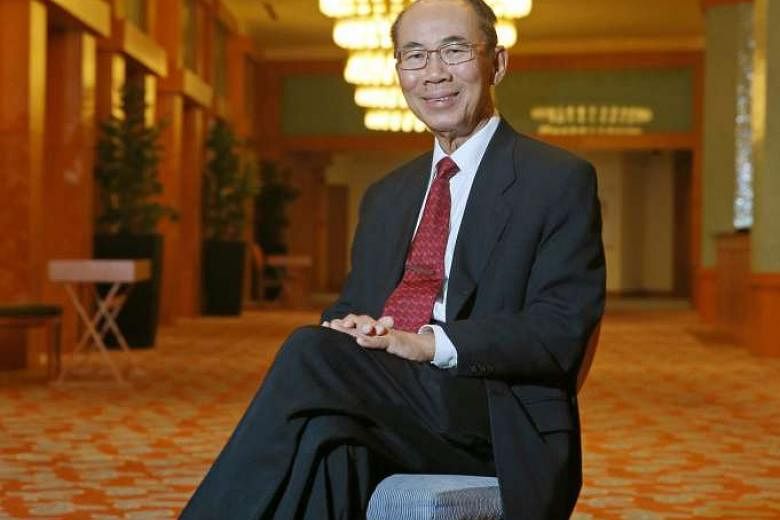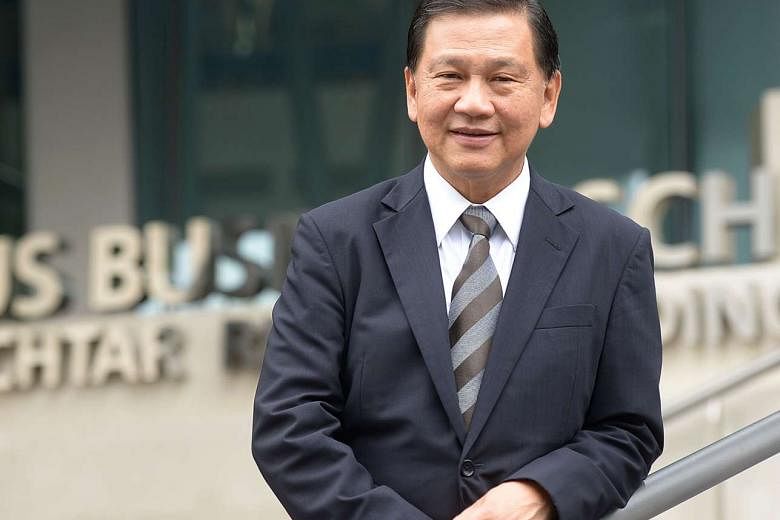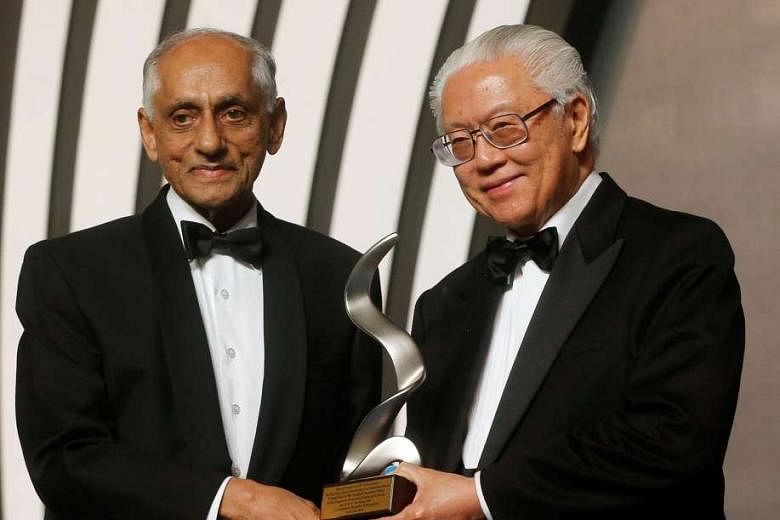Engineers here have had a long and proud history in building Singapore into a First World nation.
Pioneering engineering graduates, who were brought into government service, were instrumental in many of Singapore's infrastructural and national development initiatives, from housing and transportation to energy and water.
Mr Tan Gee Paw, chairman of PUB, lauded as the "Master Architect" of Singapore's water supply, oversaw huge development projects from the cleaning up of the Singapore River to the development of Newater. But his contributions do not stop there. He is on the panel of advisers for the Centre for Liveable Cities and most recently was brought in to advise on transportation matters.
He typifies what we call an engineer-leader - someone who is a strategic systems thinker and a value creator, able to channel talent to seize opportunities and create value with impact. Other prominent leaders who have had an engineering education include Mr Joe Pillay, former permanent secretary for finance and founding chairman of Singapore Airlines, and Mr Liew Mun Leong, former CEO of CapitaLand and currently chairman of Changi Airport Group.
In spite of this proud heritage, the spotlight has been thrown in recent months on a real lack of younger engineering talent, particularly in the public sector.
Transport Minister Khaw Boon Wan has lamented the lack of street-smart, sharp-eyed practising engineers in systems engineering who are able to work with third-party consultants. One reason is that the starting pay of young engineers in certain sectors is lagging. But this issue will soon be resolved as public-sector organisations and private companies will respond to the market need to attract new talent into engineering.
-
ENGINEERS' MERITS
-
About the writer

Professor Hang Chang Chieh, 68, received a PhD in Control Engineering from the University of Warwick in England in 1973.
From 1974 to 1977, he worked as a computer and systems technologist in Shell Eastern Petroleum Company (Singapore) and Shell International Petroleum Company (The Netherlands).
In 1977, he joined the National University of Singapore (NUS), serving in various positions, including head of the electrical engineering department. From 1994 to 2000, he served as the university's deputy vice-chancellor in charge of research. From 2001 to 2003, he was seconded to the Agency for Science, Technology and Research as its executive deputy chairman.
In 2004, he resumed his academic career at NUS. His current appointments include executive director at the Institute for Engineering Leadership and head of the engineering and technology management division at the faculty of engineering. His current research interest is in innovation policy and strategy.
Prof Hang received the 1998 Public Administration Medal (Gold) for his leadership and contributions to the university, and the 2000 National Science and Technology Medal for his leadership and contributions to science and technology development in Singapore.
The other major reason is that many young Singaporeans are not aware of the opportunities available to them with an engineering education.
These are multi-faceted.
All engineers, by their very training, have the capacity to be terrific value creators. They are trained to go deep into problems, tease apart complex issues to determine key causes, and apply engineering knowledge to come up with solutions that are practical and workable.
The engineer-leader, like Mr Tan, can understand individual components, how these components work within a bigger system, and how systems interact with other systems. This is the very reason many engineering graduates are also successful in other non-engineering fields such as in policy development and the finance sector, where their training in numerical and problem-solving skills is appreciated and sought after.
A knowledge-intensive nation like Singapore has created new and well-paid jobs for engineers. There are already more than 20,000 research engineers in the public and private sector and the number is growing. The research institutes of the Agency for Science, Technology and Research alone hire close to 2,000 research engineers.
High-tech multinational companies based in Singapore have also leveraged on the engineering talent base here. Storage solutions leader Seagate has opened the Shugart Design and R&D Centre to house 500 researchers who will focus on developing the next-generation 2.5-inch storage drives.
Local offshore engineering company Keppel Corporation established a corporate research laboratory in the National University of Singapore (NUS) Faculty of Engineering, investing $75 million with the long-term aim of creating new solutions while nurturing research engineers for the offshore industry.
Growing opportunities for engineers
Keppel has grown to be the largest offshore rig builder in the world, as it invested in early engineering R&D to develop its own jack-up rig design and drew on continual technology improvement to become the recognised industry global leader.
Such companies have created many rewarding career opportunities for young engineers willing to take up global challenges.
Opportunities for engineering graduates will continue to grow as more investment is poured into research and more effort expended on technology commercialisation.
Armed with technology and innovation management skills that they learn in progressive engineering faculties, young graduates are also increasingly drawn to joining or even creating technology start-ups.
Structo, a recent start-up nurtured through the NUS Institute for Engineering Leadership's TechLaunch programme, was started by four mechanical engineering classmates who at first wanted to create an inkless printer to save costs. The start-up emerged with a novel 3D printer which is 10 to 100 times faster than its competitors'. Structo has launched its first product for commercial users and is poised for the next significant round of investor funding.
Another recent start-up is Aerolion Technologies, founded by NUS electrical and computer engineering graduate Wang Fei. The unmanned aerial vehicle (UAV) designed and manufactured by Aerolion is able to navigate even in the absence of a Global Positioning System signal. It may be used for inspection and surveillance inside buildings and even in tunnels. Aerolion has won a contract from China State Power Grid for UAVs to inspect for defects in high-altitude power lines in adverse conditions.
Such start-ups have the potential to grow globally and they will hire more talented engineers, thus generating even more opportunities .
Indeed, forward-thinking companies in advanced economies have realised that engineering talent can be an invaluable asset as they seek to remain competitive. At Wall Street Journal's Unleashing Innovation Conference held in Singapore in 2013, 44 per cent of the conference participants comprising top executives voted that engineering provided the best preparation for a life of innovation, and 46 per cent hoped that it would have been their children's choice of study in college.
With engineering talent in the field, in corporate boardrooms, in research, and in professional sectors, a vibrant network of like-minded, tech-savvy individuals can spearhead the development of new wealth and value creation in Singapore, and ensure the country's continued growth and competitiveness in an increasingly complex world.
It is time that Singapore recognises and profiles an engineering education as a launch pad to varying career options, so our talented young people can leverage on engineering and technology management skills to create value with impact, to lead and build Singapore's growing knowledge-intensive industries.



